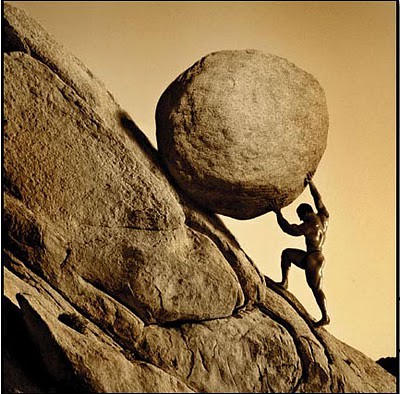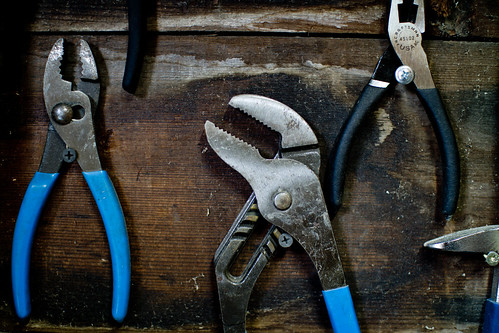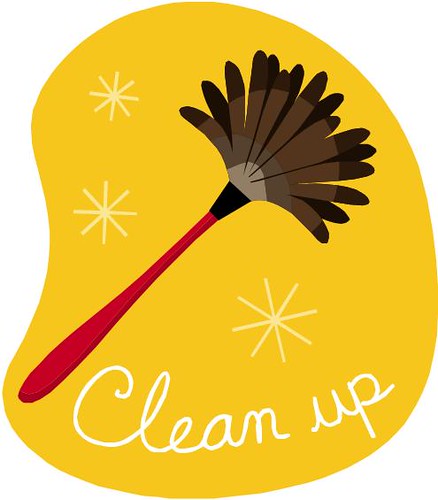 When working out with my lifting partners, I have a saying I use before a hard set. "All I want is everything you've got". What I mean by that is that I don't expect you do more than you are capable of, but exactly everything you have to offer right now. If your aiming for 8 reps, but you fail at 7, I am happy because you pushed to your limit. If you quit at 7 because it's getting hard, I'm going to be disappointed. I know I'm not alone among coaches with this idea.
When working out with my lifting partners, I have a saying I use before a hard set. "All I want is everything you've got". What I mean by that is that I don't expect you do more than you are capable of, but exactly everything you have to offer right now. If your aiming for 8 reps, but you fail at 7, I am happy because you pushed to your limit. If you quit at 7 because it's getting hard, I'm going to be disappointed. I know I'm not alone among coaches with this idea.Work shouldn't be much different. , I know we can't be at 100% intensity all the time at work, this is more like a long trail hike than like a heavy set of squats. You need to know what your current capabilities are and at what pace you can maintain. On the whole, though, you know when you've left work and you didn't reach your potential for the day.
Recently I was doing some jogging with a friend and we were moving along at his pace which at the moment happens to be slower than mine. He was apologetic that we had to go so slow, I couldn't have been happier, he was pushing himself hard to improve and we have a whole lifetime to move faster. This friend also happens to be a mentor in our profession and has on many occasions taken the time to teach me at the cost of his own productivity. I'm often apologetic to him for not knowing or not understanding quickly and he has been patient with me while still pushing me to get better. It turns out he's a good coach. As such he inspires me to do more and better work, by both demonstrating how and encouraging me to push to personal limits.
If you are anything like me you are your harshest critic, but that is what drives us to get better. Perhaps from time to time we need to take a moment to cut ourselves some slack and evaluate ourselves against what our current capacity is, rather than against what our ideal self is. However, when you get done with that reflection it's time to focus on doing a little better tomorrow. I'm not saying we should be complacent, but be understanding of the fact that we are on a journey. Accept where you are, understand where you want to be and work hard to take the steps to get there.
Professionally, giving it all is something I often struggle with. I come into work in the morning with grand dreams of all I want to accomplish for the day, and I may crank out a Pomodoro or two, but before you know it I'm shooting the breeze with a colleague, or procrastinating from an ugly task. What I'm working on is giving myself the reminder to give what I've got, and don't be afraid to struggle and even fail.
The thing to remember here is that not every lift in the gym, nor every run, nor every day at the office is going to be a Personal Record (PR), but that is no reason you shouldn't do all you are capable today. All I Ask is For Everything You've Got.
The thing to remember here is that not every lift in the gym, nor every run, nor every day at the office is going to be a Personal Record (PR), but that is no reason you shouldn't do all you are capable today. All I Ask is For Everything You've Got.






